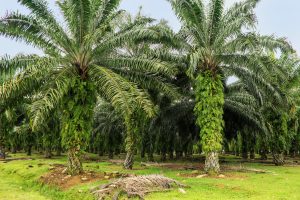Indonesia said yesterday that it will lift a ban on palm oil exports that has played havoc with global edible oil markets, citing improvements in the domestic supply of cooking oil. The announcement was made by President Joko “Jokowi” Widodo in a press conference yesterday, at which he said that the exports would be permitted to resume next week, the Associated Press reported.
“Based on the current supply and price of cooking oil and considering that there are 17 million workers in the palm oil industry, both working farmers and other supporting staff, I have decided that the export of cooking oil will reopen on Monday, May 23,” Jokowi said, according to the AP report.
Jokowi’s administration imposed the ban in late April, in a bid to control the soaring domestic cost of cooking oil – a potential political liability – after subsidies, export permits, and a palm oil levy had all failed to bring the cost down. The move by Indonesia, the world’s largest palm oil exporter, rocked global markets for edible oil, already hard-hit by the ongoing conflict in Ukraine, which has tightened supply of sunflower oil. In the aftermath of the export restriction, the global price of palm oil spiked by more than 200 percent.
But despite costing exporters tens of millions in revenue, inefficient bureaucracy has prevented the ban from successfully bringing down the domestic price of bulk cooking oil, which has dipped only slightly from its peak average of 18,000 rupiah ($1.22) last month.
At the same time, the Indonesian Oil Palm Farmers Association (APKASINDO) claims that by creating a glut of domestic palm oil supply, the ban has undercut the livelihoods of hundreds of thousands of smallholder farmers. Earlier this week, APKASINDO coordinated dozens of protests across the country, at which farmers demanded the rescinding of the ban.
The government previously said that it would lift the ban when prices dropped to 14,000 ($0.96) per liter. During his press conference, Jokowi acknowledged that the price was considerably higher than the target – late last week, it stood at around 17,300 rupiah ($1.18) per liter – but he expects it to drop further in the next few weeks as more palm oil becomes available.
According to the Jakarta Post, APKASINDO’s chairman, Gulat Manurung, said that the organization had plans to hold additional protests, in which it would “bring 1 million palm kernels to the Hotel Indonesia traffic circle in Central Jakarta, where the kernels would be processed into red palm cooking oil then sold, as a form of protest.”
Clearly, the government has chosen to abandon the ban prematurely after beginning to feel the political heat, both from those affected by high oil prices, and by the farmers referenced by Jokowi. The rising prices in daily essentials, including cooking oil, have contributed to a sharp fall in Jokowi’s approval ratings over the past few months. Figures released by pollster Indikator Politik Indonesia on May 15 showed that satisfaction with the Indonesian leader had fallen to 58.1 percent this month, after a 12-point fall between January and April.
Recognizing the link between the price of basic goods and political stability, the Indonesian government has long shown an inclination to intervene in the working of the markets in order to maintain price stability.
But in this case, it appears that the ban has been intended more as a form of political signaling, both to the public – as a sign that “the president is doing something,” as Yose Rizal Damuri, an executive director at Jakarta’s Center for Strategic and International Studies, told Reuters this week – and to a private sector whose pursuit of export profits has arguably undermined the domestic economy. As my colleague James Guild wrote earlier this month, the ban “is meant to send a message about the power of the state to discipline markets when it’s in the national interest to do so.”

































